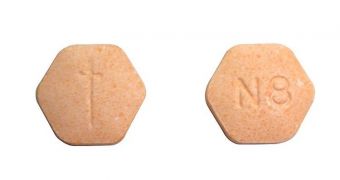Researchers from the National Institute on Drug Abuse (NIDA) announce that a combination of the drugs buprenorphine and naloxone, commonly made available under the brand name Suboxone, are efficient at handling opioid and prescription painkillers abuse in the general population.
Experts from NIDA – which is a part of the US National Institutes of Health (NIH) – published details of the first-ever large-scale study on the topic in the November 7 issue of the esteemed medical journal Archives of General Psychiatry.
Another important point the study made was that intensive opioid dependence counseling provided no statistical benefit to people who abuse such chemicals. No clear effect was discernible even when the counseling was combined with Suboxone-based therapies.
One of the main reasons why NIDA tested to efficiency of Suboxone rather than select another type of medication was that the drug is already approved for human use by the US Food and Drug Administration (FDA).
“The study suggests that patients addicted to prescription opioid painkillers can be effectively treated in primary care settings using Suboxone,” Nora D. Volkow, MD, the director of NIDA, said in a recent statement released on November 8.
“However, once the medication was discontinued, patients had a high rate of relapse – so, more research is needed to determine how to sustain recovery among patients addicted to opioid medications,” she went on to say.
Suboxone represents a custom-built drug. Buprenorphine was added to the mix due to its ability to reduce opioid craving. On the other hand, naloxone is a chemical capable of causing withdrawal symptoms in opioid addicts if Suboxone is taken by a route other than orally, as prescribed.
“Despite the tremendous increase in the prevalence of addiction to prescription painkillers, little research has focused on this patient population,” Harvard Medical School investigator and lead study author Roger Weiss, MD, said.
“This is the first large-scale study to examine treatments exclusively for people who were abusing prescription painkiller medications and were treated with buprenorphine-naloxone, which can be prescribed in a physician's office,” he added.
Official statistics from the Substance Abuse and Mental Health Services Administration's (SAMHSA) National Survey on Drug Use and Health, nearly 2 million people abuse, or are dependent of, prescription painkillers. These figures include children as young as 12.
As such, finding a way to reduce that number is bound to become a target for nation-wide policies, and researches such as this one may provide the required scientific background for upcoming decisions, PsychCentral reports.

 14 DAY TRIAL //
14 DAY TRIAL //